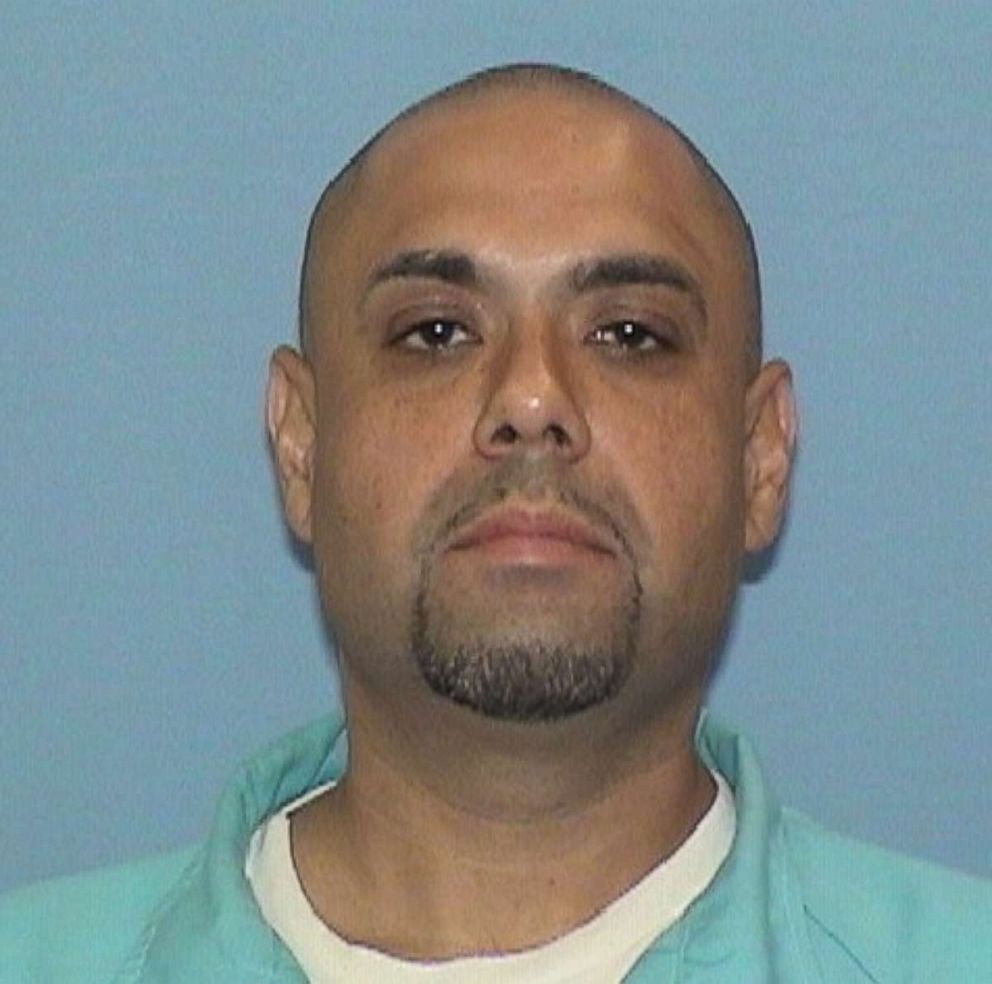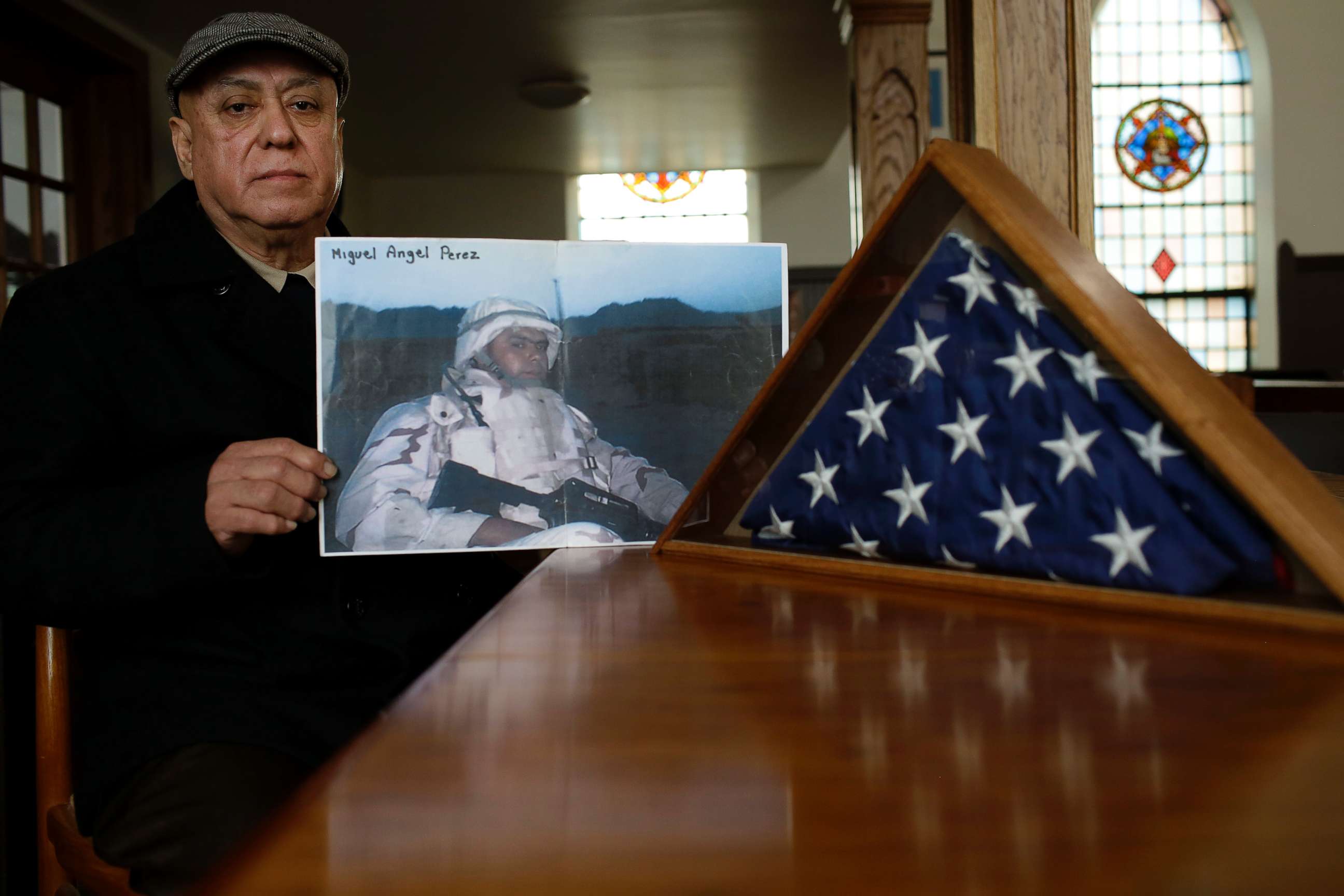After two tours in Afghanistan, US Army vet deported to Mexico
Sen. Tammy Duckworth had taken up Miguel Perez's cause.
He served two combat tours in Afghanistan.
He then developed a drug habit his family blames on PTSD and he went to prison for selling cocaine.
Now, U.S. Army veteran Miguel Perez Jr. has been deported to Mexico, according to U.S. Immigration and Customs Enforcement, a decision Sen. Tammy Duckworth says is "based more in hate than on logic."
It marks the end of a five-year fight for former Army Pfc. Perez, 38, who his family says mistakenly believed his military service made him a U.S. citizen by default.
Perez was flown from Gary, Ind., to Brownsville, Texas, Friday where he was escorted across the U.S.-Mexico border and handed over to Mexican authorities, an ICE statement said.
A native of Mexico, Perez came to the U.S. legally when he was eight-years-old and grew up in Chicago. He served two tours of duty in Afghanistan before being discharged with a diagnosis of post-traumatic stress disorder, according to ABC station WLS-TV in Chicago.
After being discharged from the Army, Perez pleaded guilty to selling cocaine and served about seven years in prison.

Perez’s mother, Esperanza Medina, told ABC News her son never formally filed for citizenship because he misunderstood the rules governing the process. As a result, Perez was placed into removal proceedings by ICE in 2012 while serving his prison sentence.
Perez’s lawyer and family attribute his conviction to a period when Perez was self-medicating for pain related to his time in the service, they said.

Perez's attorney, Christopher Bergin, added that Perez "was blown out of his Jeep in Kandahar," and that he suffered a traumatic brain injury (TBI) and post-traumatic stress disorder (PTSD) as a result of the blast. Perez told The Chicago Tribune last month that grenade and roadside bomb explosions during his tours led him to lose much of his hearing and suffer headaches.
After returning home from Afghanistan, Perez told the Tribune he longed for the adrenaline rush from combat and eventually turned to cocaine. He ultimately opted for an early discharge from the Army after failing a drug test, he told the Tribune.
Sara Walker, who works at Perez's family's church, Lincoln United Methodist Church in Chicago, told ABC News that Perez told her he turned to drugs for relief. Lincoln United Methodist Church helped connect Perez's family to Bergin, who is handling the case pro bono.
"He told me that when he made that mistake he was drinking and doing drugs 24/7," Walker said.
ICE officials say the agency respects the service and sacrifice of those in military service and is very deliberate in its review of cases involving U.S. military veterans.
Perez’s story became a cause celebre, with Sen. Tammy Duckworth, D.-Ill., fighting on his behalf. Upon news of the deportation, Duckworth released a statement Saturday saying, “This case is a tragic example of what can happen when national immigration policies are based more in hate than on logic and ICE doesn’t feel accountable to anyone. At the very least, Miguel should have been able to exhaust all of his legal options before being rushed out of the country under a shroud of secrecy."

"I am appalled that Secretary Nielsen did not respond to my personal appeal asking merely that she review Miguel's case and decide for herself whether deporting this brave combat Veteran was a good use of DHS’ limited resources. I will be looking into additional oversight options in the near future to protect this from happening to any other combat Veteran," Duckworth said.




